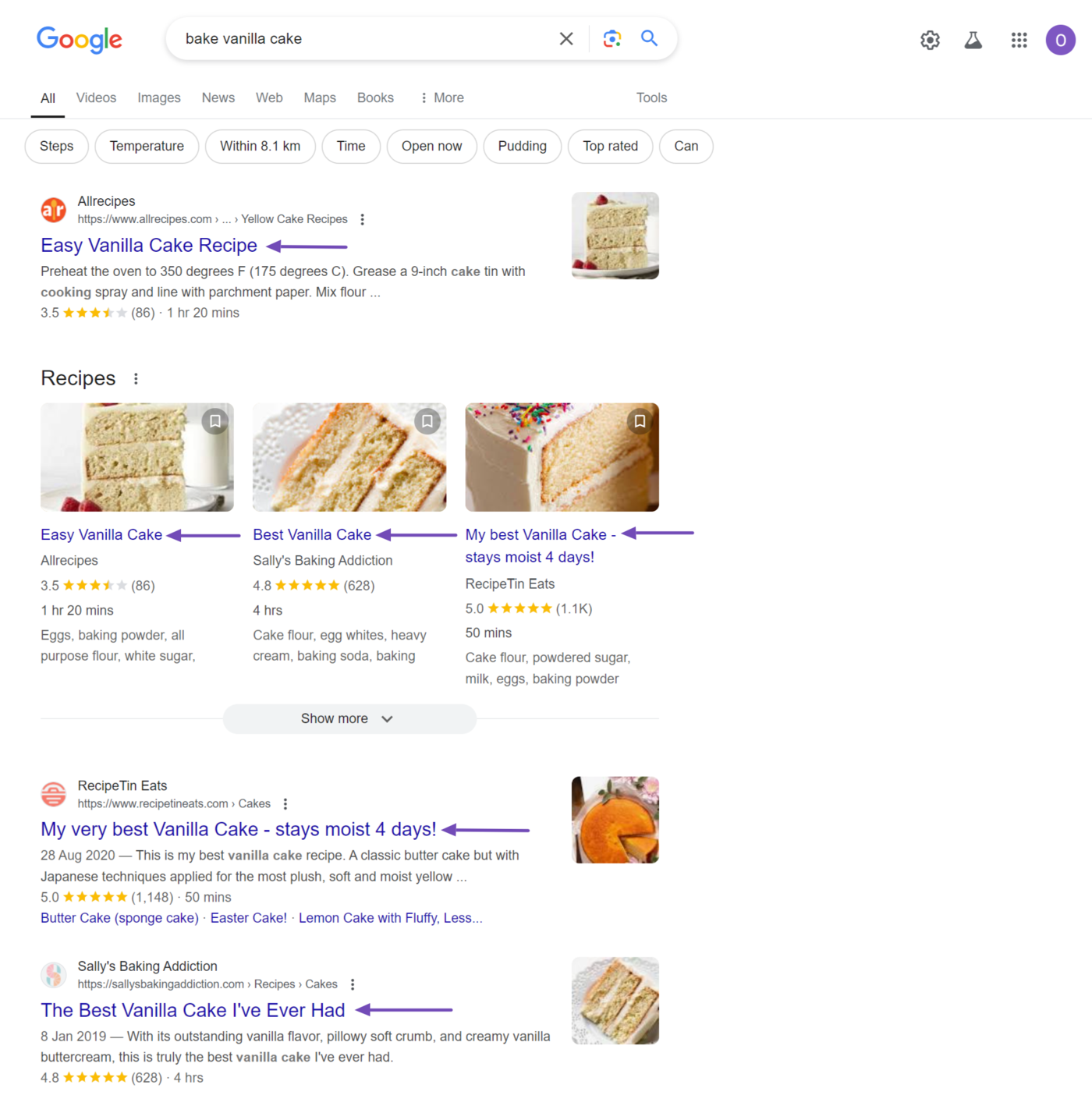¿Qué es una consulta informativa?
Una consulta informativa describe las consultas de búsqueda que realizan los visitantes para obtener más información sobre un tema. La utilizan para recopilar información, descubrir explicaciones o buscar detalles sobre un tema.
Google Pautas para los evaluadores de calidad de búsqueda Las consultas informativas se denominan consultas de "conocimiento". Estas consultas las utilizan los visitantes que buscan explorar un tema, como "Barack Obama", "Nueva York" y "planificación de la jubilación".
Las Directrices para Evaluadores de Calidad de Búsqueda de Google también definen una categoría de consultas conocidas llamadas consultas "simples". Estas consultas son informativas y las utilizan los visitantes que buscan información objetiva y específica sobre un tema. Por ejemplo, "¿Cuál es la altura de Barack Obama?" y "Población de la ciudad de Nueva York en 2022".
La consulta informativa es uno de los cuatro tipos de consultas de búsqueda. Los otros tres son:
Las consultas informativas pueden parecer preguntas. Por ejemplo, "¿Qué es el yoga?" y "¿Por qué el yoga es bueno para la salud?". Sin embargo, esto no siempre es así, ya que pueden no incluir las palabras que las identifican como preguntas. Por ejemplo, "yoga" y "beneficios del yoga para la salud".
Las palabras clave informativas son menos competitivas que las de navegación, transaccionales y comerciales. Esto significa que suelen ser más fáciles de posicionar. A los blogueros con baja autoridad web se les suele animar a posicionarse con palabras clave informativas de cola larga hasta que puedan posicionarse con palabras clave más competitivas.
Importancia de las consultas informativas
Las consultas informativas son una excelente manera de establecerse como una autoridad dentro de un nicho o tema.
Las consultas informativas por sí solas no generan una venta. Además, tienen menos probabilidades de generar muchas conversiones, pero son una excelente manera de presentar tu marca a los visitantes.
Los visitantes que usan palabras clave informativas probablemente estén investigando un tema y buscando más información al respecto. Al llegar a su sitio, podrían usar sus... enlaces internos y barra lateral para navegar a otro contenido relacionado.
Cuantas más páginas visiten, mayor será la probabilidad de que recuerden tu sitio. Esto aumenta la presencia de tu marca. También aumenta las posibilidades de que el visitante termine en una página de ventas o... página de destino, compre su producto o servicio, o suscríbase a su boletín informativo.
Los visitantes también podrían recordar su sitio cuando aparezca en futuras búsquedas. Si su sitio también contiene anuncios o enlaces de afiliados, puede generar ingresos cuando los visitantes ven los anuncios en las páginas o hacen clic en el anuncios de pago por clic (PPC) o enlaces de afiliados.
Cómo encontrar palabras clave informativas
Encontrará palabras clave informativas durante su investigación de palabras claveAlgunas herramientas de investigación de palabras clave ofrecen opciones para encontrar palabras clave informativas. Sin embargo, en muchos casos, estas palabras clave incluirán las cinco "w" y la "h". Es decir:
- OMS
- Qué
- Cuando
- Dónde
- Por qué
- Cómo
Por ejemplo:
- ¿Qué es SEO?
- Cómo hornear un pastel
- ¿Por qué es importante el yoga?
Sin embargo, Google se centra en la intención de búsqueda, no en las palabras clave. Por lo tanto, seguirá identificando consultas informativas, incluso si no incluyen las cinco "w" y la "h". Por ejemplo:
- Los visitantes que buscan "¿Qué es SEO?" pueden buscar "SEO".
- Los visitantes que buscan "Cómo hornear un pastel" pueden buscar "Receta de pastel".
- Visitantes que buscan '¿Por qué es importante el yoga? puede buscar 'La importancia del yoga'
Las palabras clave informativas también pueden contener modificadores que indican que el visitante busca información específica:
- Consejos
- Guía
- Aconsejar
- Reseñas
- Guía
- Ideas
- Cómo hacerlo
- Tutorial
- Definición
- Ventajas
- Paso a paso
- Estrategias
- Características
- Ejemplo
- Beneficios
En total, si desea confirmar qué tipo de tema devuelve Google para una consulta de búsqueda, ingrese la consulta o palabra clave en Google y vea qué tipo de contenido aparece. Por ejemplo, "hornear pastel de vainilla" devuelve una página de resultados que lleva a varias recetas. Esta consulta es informativa.
